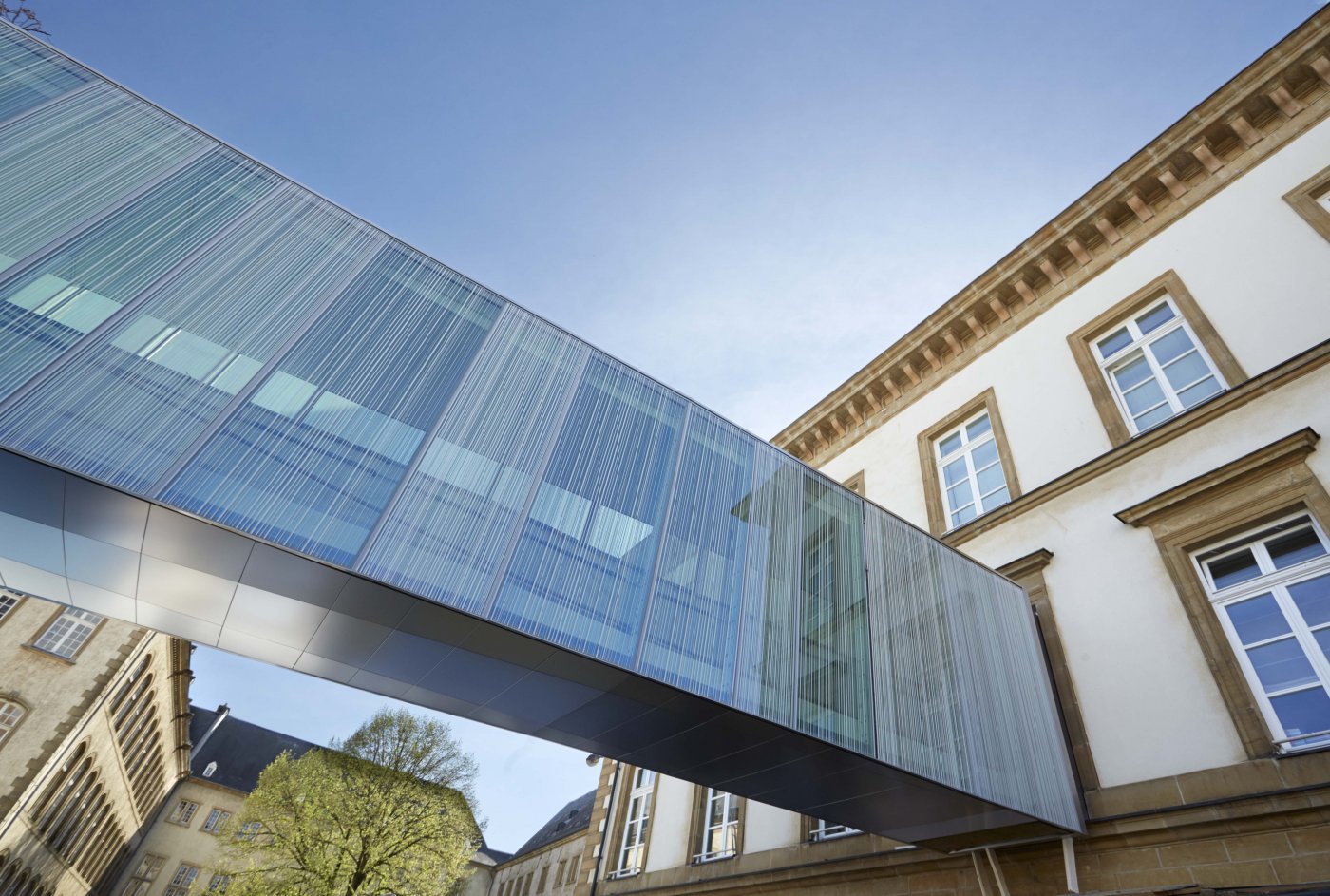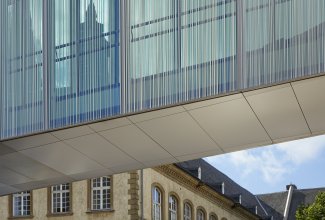Summary record
Video
Late night events at Rives de Clausen and in the establishments in Rue de la Tour Jacob
QUESTION BY DAVID WAGNER
Many local residents in the Clausen district are disturbed by noise from the night time activities in bars and restaurants, especially at Rives de Clausen and Rue de la Tour Jacob.
On New Year's Eve and the eve of National Day, the establishments in question can apply for authorisation to stay open until 6:00.
Without challenging this authorisation, the local residents however were told that the establishments would make sure that they closed their doors and windows from 3:00 onwards in order to reduce noise.
It seems, however, that some establishments did not abide by this agreement.
As such, I would like to ask the following questions:
- Is it true that some establishments did not comply with this agreement?
- If that is the case, do you plan to remind these establishments that they must close their doors and windows by 3:00 and inform the police of this so they can monitor compliance?
RESPONSE BY LYDIE POLFER
The Mayor replied that, based on existing regulations, the Mayor can authorise late-night events up to 3:00 and even until 6:00, especially for some occasions such as the National Day and New Year's Eve.
Concerning Rue de la Tour Jacob, the new General Development Plan (Plan d'aménagement général – PAG) introduced a change, namely that a segment of this street, previously classified as a protected area of the Pétrusse and Alzette valleys and the promontory of the Rham, was re-classified as a mixed zone to take account of the presence of restaurants.
Following this reclassification, these establishments can hold late night events until 6:00 on some occasions. As the authorisation issued includes the requirement that café owners ensure that the neighbourhood is not disturbed, the police carries out regular checks and penalises non-compliance with this obligation.
In the recent past, there have been no particular incidents reported and the conditions imposed are, moreover, the same for all.
Occupation of ground floors in the city centre
QUESTION BY CLAUDINE KONSBRUCK
The City of Luxembourg has established precise rules for the occupation of spaces rented on the ground floors of buildings in the city centre.
As such, Article D.3 1.1. on the mixed urban zone (MIX-u), in the section of the existing district development plan (plan d'aménagement particulier quartiers existents – PAP QE) entitled "Old Town: protected area" (Secteur protégé de la Vieille Ville), specifies that all existing ground floor premises reserved for the purpose of craft activities, business, the provision of services, or the sale of food or drinks must be maintained for that purpose or replaced by an activity corresponding to these categories.
One cannot help but note, however, that several ground-floor premises in the city centre are used as the offices of political parties and real estate agencies.
- Are these uses in compliance with the prescriptions of the PAG and the PAP QE?
RESPONSE BY LYDIE POLFER
The Mayor replied that, following a visit of the premises and televised reports, the problem in question has been referred to the City's building inspectors.
- In accordance with Article D3.1.1 al 1 of the written part of the PAG QE, all existing ground floor premises reserved for the purpose of craft activities, business, the provision of services, or the sale of food or drinks must be maintained for that purpose or replaced by an activity corresponding to these categories.
- In accordance with Article 57.2 of the building regulations, an authorisation must be obtained for any change in the use of these premises.
In the building in question located at 8, Rue de la Boucherie, there was a jewellery shop, but the current use does not meet the above-mentioned criteria; in a letter from the Mayor dated 19 March, the owner of the building, an S.A. (public limited company), was informed of its infringement of the applicable regulations and was requested to comply with the regulations and submit evidence of due compliance. To date that request remains unfulfilled.
Concerning the real estate agencies: within a delimited perimeter of the city centre, circumscribed by Rue Notre-Dame, Rue Aldringen, Rue des Bains, Rue Willy Goergen and Rue du Fossé, the establishment of additional real estate or banking agencies is not permitted. However, the building at 8, Rue de la Boucherie is not located within this perimeter. Under the Joly plan, the regulations were not so strict, hence the establishment of the European Parliament Information Office in the building located at 7, Rue du Marché-aux-Herbes (formerly Maison Gilly).
Establishment of a primary school at the Michel Lucius International School in Limpertsberg
QUESTION BY CLAUDINE KONSBRUCK
The English language primary school at the Michel Lucius International School, which opened in the autumn of 2017, is currently located in the modular building in Rue Charles IV in Belair with 280 pupils.
The school will move to the premises of the Lycée Vauban in Limpertsberg after Easter.
This decision goes against the efforts of the City to move certain educational establishments out of Limpertsberg in order to reduce vehicle traffic in this residential district.
- Have the municipal authorities been involved in this project?
- Are there any plans for group transport of the children and a transportation plan to prevent hundreds of parents from dropping off their children each morning in front of the school?
- What is the foreseeable duration of this temporary use of the Lycée Vauban premises?
RESPONSE BY PATRICK GOLDSCHMIDT
Alderman Goldschmidt replied that the College of Aldermen had given its approval to the Ministry of Education, Children and Youth to establish the Michel Lucius English language primary school in Belair, in a modular building located in Rue Charles IV.
Plans had been made to relocate the school to another site in the summer of 2018 and, pending the selection of the final site, an empty building in Limpertsberg was identified as a solution as it is less expensive than continuing to use the modular buildings.
In early 2018, the Public Buildings Authority (Administration des Bâtiments Publics) expressed a desire to use the modular buildings for another purpose, and asked for them to be vacated earlier than anticipated. Consequently, the decision was taken to reschedule the relocation to Easter, but since the City's Service Circulation (Traffic Department) was not aware of the decision, it was not able to establish a traffic plan in time.
Since many children are dropped off near the school by their parents, the organisation of a quick drop-off zone is rather complex. However, the Service Circulation is currently drawing up an appropriate plan.












